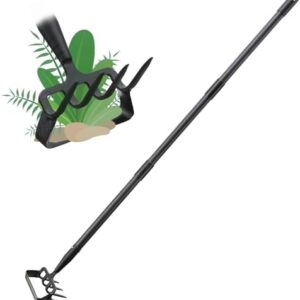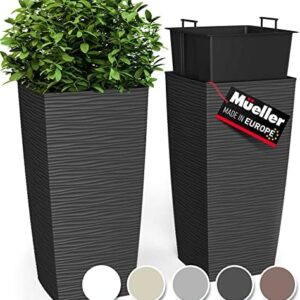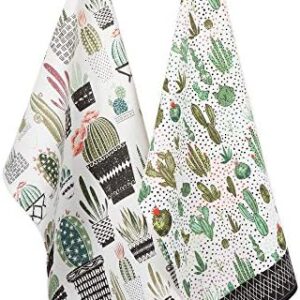When it comes to gardening, there are a plethora of hacks and tips out there to help you achieve a bountiful harvest. But if you’re looking for an easy and organic approach to gardening, look no further! We’ve rounded up some simple yet effective tips that will help you grow a successful garden without the use of harmful chemicals or pesticides.
First off, let’s talk about the importance of soil. Good soil is the foundation for a successful garden, so it’s crucial to ensure that your soil is healthy and nutrient-rich. One easy way to improve your soil is by adding compost. Compost is a great natural fertilizer that will help nourish your plants and improve soil structure. You can make your own compost using kitchen scraps, yard waste, and other organic materials, or you can purchase it from a gardening supply store.
Another important aspect of organic gardening is pest control. Rather than reaching for chemical pesticides, consider using natural pest control methods. For example, planting companion plants that repel pests can help protect your garden without the need for harmful chemicals. Some plants, like marigolds, basil, and mint, are known to repel pesky insects and can be strategically planted throughout your garden to keep pests at bay.
In addition to companion planting, you can also attract beneficial insects to your garden to help control pests naturally. Ladybugs, lacewings, and predatory wasps are just a few examples of beneficial insects that feed on harmful pests. By creating a welcoming environment for these insects with a diverse array of plants and flowers, you can help maintain a healthy balance in your garden without the need for chemical interventions.
Watering is another crucial aspect of successful gardening. To conserve water and promote healthy plant growth, consider using a drip irrigation system. Drip irrigation delivers water directly to the roots of your plants, reducing water waste and minimizing the risk of fungal diseases that can occur from overhead watering. Additionally, watering in the early morning or late evening can help reduce evaporation and ensure that your plants have adequate moisture throughout the day.
Mulching is another simple yet effective technique for organic gardening. Mulch helps to retain moisture in the soil, suppresses weeds, and adds nutrients as it breaks down over time. You can use a variety of materials for mulch, such as straw, grass clippings, or shredded leaves. Just be sure to apply a thick layer of mulch around your plants to reap the full benefits.
Finally, don’t forget to feed your plants! Organic fertilizers, such as compost or vermicompost (worm castings), can provide essential nutrients to your plants without the use of synthetic chemicals. You can also make your own organic fertilizer by steeping compost in water to create a nutrient-rich liquid fertilizer known as compost tea. Alternatively, you can add organic amendments like bone meal, kelp meal, or fish emulsion to provide a boost of nutrients to your plants.
By incorporating these easy organic gardening hacks into your gardening routine, you can create a thriving garden that is not only beautiful but also environmentally friendly. With a little bit of planning and effort, you can enjoy a bountiful harvest of fresh, healthy produce that you can feel good about feeding to your family. So roll up your sleeves, get your hands dirty, and enjoy the rewards of organic gardening!






